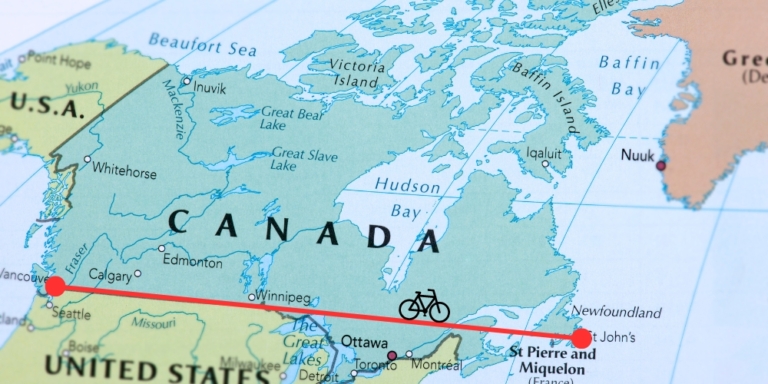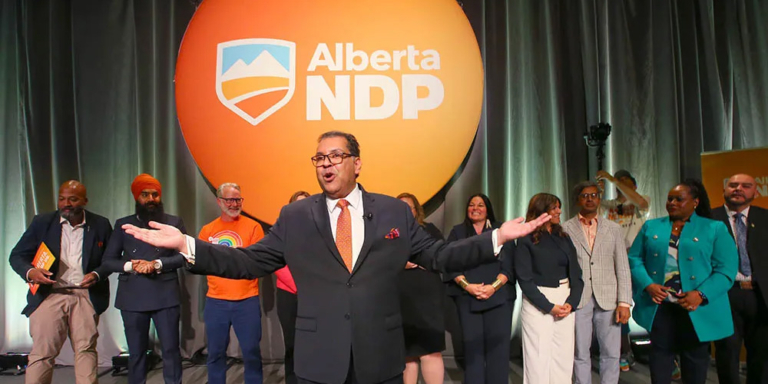The recent announcement by Premier Danielle Smith’s United Conservative government of a seven-month halt on renewable energy approvals created uncertainty and frustration among various stakeholders in the province.
This decision left many workers, businesses, and municipalities, questioning the future of wind and solar energy in our strong and free province. It’s not just an abstract policy issue; they are worried about their projects and livelihoods.
Should workers be worried?
Shawn Hubbard, a former oilpatch worker who now works in renewables, is among those worried about this move.


After two decades in the oil industry, Hubbard retrained and found stability and a more stable future by installing solar panels in the renewable energy sector. He currently works for the City of Medicine Hat.
Premier Smith’s sudden announcement raises fears about the possible suspension of thousands of jobs, including Hubbard’s. Billions of dollars in project investments are now in limbo.
The Alberta Government released a fact sheet that addressed the question, “What will happen to workers during the pause?”.
Their answer?
“There is a long list of already approved projects under construction that are not impacted by the pause.”
But what about the workers affected by projects put on hold?
Their answer?
“Only the 13 projects before the Alberta Utilities Commission (AUC) seeking approval will be paused.“
But that’s still lots of jobs.
How many jobs could be lost?
According to a recent Pembina Institute report, the moratorium affects 118 projects worth $33 billion and could potentially halt employment opportunities for up to 24,000 individuals.
The government’s response?
“To be clear, 105 of the cited 118 proposals are months and, in some cases, years away from their application being presented to the AUC for approval, which can take months.”
However, many of these projects aimed to connect to the grid by 2025, meaning the delay could still adversely affect them.
The pause not only worries workers, but it’s shaking investor confidence.
According to an article in the Cochrane Eagle, several renewable companies have already expressed concerns over the decision and are contemplating redirecting their investments away from Alberta.
How are towns and cities being affected?
Some municipalities now have stranded projects.
One such project is in the Town of Innisfail’s six-acre municipal solar farm, which will bring in $500,000 per year in revenue for the municipality.
The town council expressed frustration at the blanket moratorium, which they think should not apply to their specific project.
Mayor Jean Barclay highlights that the government’s rationale for the pause -like concerns over using prime agricultural land – do not apply to their project, which was to be located in an unused industrial zone.
Barclay told the Cochrane Eagle, “Frankly, it doesn’t make any sense. There’s been several reasons given why it’s [the pause] in place, but it seems to be around using prime agricultural land, and I get that,” said Barclay. “But here we have a project that’s going into an industrial park on a piece of land that cannot be developed.”
Innisfail, a progressive urban centre, has already developed a 96-acre, 25.4-megawatt solar farm in town, and it simply wants to add another smaller solar project.
Premier Smith’s blanket pause did not consider Innisfail’s specific situation, which will cause a significant delay in the project’s construction.


In Caroline, the Mayor, John Rimmer, is also frustrated by the renewables pause. He told Global News, “They pulled the rug out from under us.”
The pause halted a solar project that would have contributed at least 15 percent of Caroline’s budget.
Rimmer and the village council sent a letter to Premier Smith requesting that the moratorium be lifted.
in Peace River, the Peace Energy Cooperative (PEC) was only days away from obtaining approval from the AUC to commence construction on a 13-hectare solar farm. Before being halted, their project would have provided power to around 1,200 homes annually.
This project, known as the Peace River Energy Project (PREP), is a distinctive for-profit investment cooperative, aimed at offering an ongoing income to its 650 members.
Co-operative president Joanne Dueck told The Tyee, “It feels like fossil fuels get government favour. It feels like we don’t get nearly some of the same lobby power that those groups have. And we have to fight uphill to keep our quarter.”
The project would have created 50 “direct and indirect” jobs during eight months of construction, and now these are on hold,
What about Investors?
When asked, “Are we going to miss out on investments because of the pause?” The government’s information sheet states that:
“Alberta is the best province in Canada for renewables investments by a wide margin. Unlike other provinces with provincially-owned power companies that only develop renewables at the request of the government, Alberta allows private generators to invest at will.”
Some investors disagree.
Hope Solar Investment, a renewable energy company, confirmed to City News Edmonton that some investors have withdrawn due to the uncertainties created by the Premier’s moratorium.
Gary Morris, co-founder of Hope Solar Investments, expressed disappointment in the lack of clear guidance from the provincial government on this matter.
Investors have little faith that the government’s seven-month pause will develop a new framework to ensure the reliability and affordability of the electricity grid.
As investments in renewable energy increase globally, Alberta’s decision to pause leaves many questioning the government’s motivations, especially in a province so rich in wind and sun resources.
The province faces the challenge of balancing its rich fossil fuel history with the inevitable shift towards sustainable energy.
But is the pause driving away confidence that Alberta can be a leader in renewables?
Let’s see which way the wind blows.








